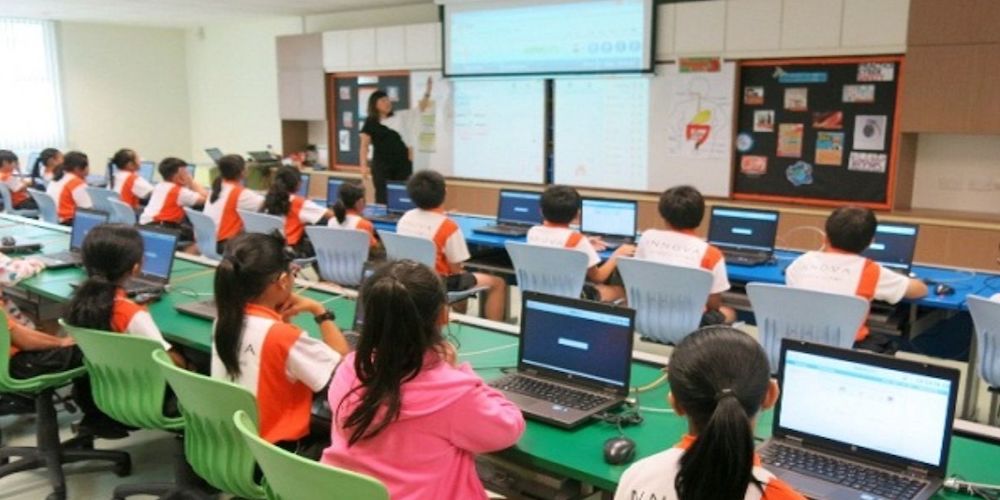School education in India receives UNESCO’s recognition

Use of Information and Communication Technology (ICT) under a comprehensive initiative called PM eVIDYA by the Department of School education, Ministry of Education, particularly during the COVID-19 pandemic has won UNESCO’s recognition.
The PM eVIDYA was initiated as part of Atma Nirbhar Bharat Abhiyaan by the Ministry of Education on 17th May, 2020, which unifies all efforts related to digital/online/on-air education to enable multi-mode access for imparting education by using technology to minimise learning losses.
Central Institute of Educational Technology (CIET), a constituent unit of National Council of Educational Research and Training (NCERT) under Department of School Education and Literacy (DOSEL), Ministry of Education (MoE), Government of India has been awarded with the UNESCO’s King Hamad Bin Isa Al-Khalifa Prize for the Use of ICT in Education for the year 2021.
This award “recognizes innovative approaches in leveraging new technologies to expand educational and lifelong learning opportunities for all, in line with the 2030 Agenda for Sustainable Development and its Goal 4 on Education. Established in 2005 with the support of the Kingdom of Bahrain, the Prize rewards individuals and organizations that are implementing outstanding projects and promoting the creative use of technologies to enhance learning, teaching and overall educational performance in the digital age. An international Jury selects two best projects annually. Each prizewinner receives US$ 25,000, a medal and a diploma during a ceremony at UNESCO Headquarters in Paris”, which this year was held on 24th June.
With a mandate to deploy affordable technology to enhance the educational opportunities for all, to augment the quality of education and to bring equity into the educational system in the country and keeping in view the recommendations of NEP-2020, Ministry of Education through CIET, NCERT has been working tirelessly and meticulously in designing, developing and disseminating a large number of eBooks, eContent – audios, videos, interactives, augmented reality contents, Indian Sign Language (ISL) videos, audiobooks, talking books, etc.; a variety of eCourses for school and teacher education; organizing digital events like online quizzes primarily for students and teachers through leveraging Online/Offline, On-Air technology One Class-One Channel, DIKSHA, ePathshala, NISHTHA, school MOOCs on SWAYAM, etc.
As mentioned, PM eVidya was launched in May 2020, to further the objectives of NEP (New Education Policy) & “Samagra Shiksha”. It unifies all efforts related to digital/online/on-air education to enable multi-mode access to education. This will benefit nearly 25 crore school going children across the country.
The CIET was proactive in taking learning to the doorsteps of the children through the extensive, resilient, ethical, and coherent use of 12 PM eVidya DTH TV channels and nearly 397 radio stations, including community radio stations under the PM eVidya program. These efforts were especially helpful in pandemic situations, when schools were closed, in reaching out to students. These efforts helped in arresting the learning hiatus to a large extent.
The initiative of PM e-VIDYA came when due to the Covi-19 lockdown students were not able to get proper education because of lockdown. Keeping this in mind the finance Minister Mrs. Nirmala sitharaman had announced a PM eVIDYA program for students.
Through this program, various types of online models are launched in order to provide quality education to the students.
Under this scheme, the top hundred universities in the country started educating students through online education after 30th May 2020. There are many students throughout the country who do not have access to the internet. For all those students swayam Prabha DTH channel was launched to provide education. The government will also launch 12 more similar channels under this scheme. Other than that a Diksha platform has also been launched which involves e-content and QR code energized books for all the classes. For visually and hearing impaired students the government arranged radio podcasts.
PM eVIDYA, also called a one Nation digital platform, will be expanded by the government under one class one TV program from 12 to 200 TV channels in order to impart supplementary teaching and build a resilient mechanism for education, it is said. This has been announced by the finance minister Nirmala Sitharaman while presenting the union budget 2020-23 in the parliament. She also addressed the fact that due to the pandemic schools are closed and children particularly who are living in rural areas and from scheduled caste and scheduled tribes and other weaker sections have lost two years of formal education.
Through these channels, high-quality content in all the spoken languages will be developed through the internet, mobile phones, TV, and radio.
In the budget speech, the finance minister said that this year vocational courses and creative courses will be started in order to boost the skill of students.
There will be 750 virtual labs and 75 skill labs in Science and maths.
Teachers will be available through digital mode.
Other than that, high-quality education material will be made available to the students in their regional languages through the internet, mobile phones, TVs, etc.
The government is also going to set up a Digital University.
Through this University students will be able to get an education at their home in all Indian languages and ICT formats



